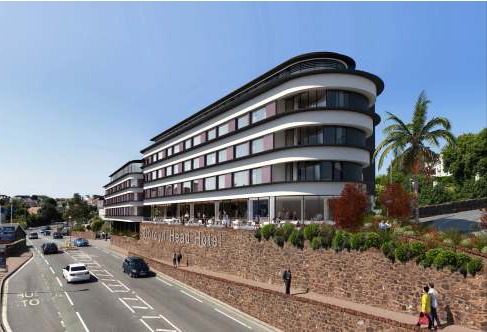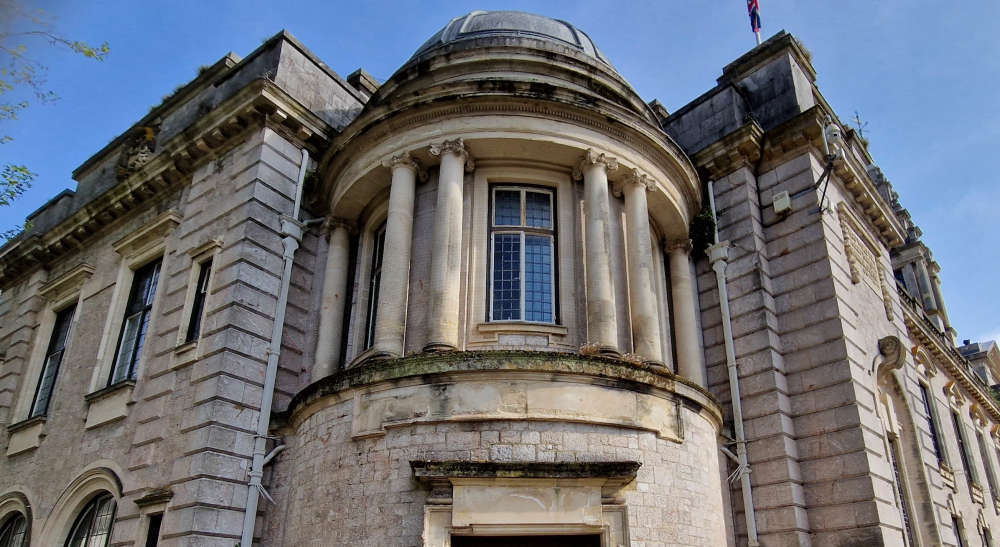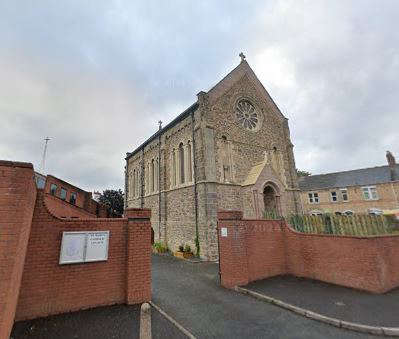
It received the highest number of objections ever seen in Torbay.
The decision by Torbay Council’s planning committee was greeted by shouts of ‘shame’ from the audience of about 100 people in the Riviera Centre, around a mile from the site for the new 152-bedroom hotel.
The developer welcomed the decision as “a vote in favour of investment for future generations” which allows it to move forward with its planned £100m redevelopment of four sites in Torbay.
The committee was tied 4-4 on a proposal from Conservative Chris Lewis to approve the application in line with a recommendation from officers including a series of conditions. That was seconded by Liberal Democrat Mandy Darling. The committee chair, Liberal Democrat Nick Pentney, voted in favour to break the deadlock.
The three-hour meeting heard arguments for and against the revised plan, which was submitted on behalf of developer The Fragrance Group a month after the committee rejected an earlier scheme.
In June councillors cited the visual impact and lack of parking spaces as reasons for refusal, after hearing claims from objectors that it would be too big, too high and out of place alongside Torbay Road, overlooking the sea in front of the Cromartie Point flats block.
By the time of the meeting there were 526 objections, which opponents said was the highest number for any planning application in Torbay. There were 20 comments in support.
The new application showed the highest point of the building at the roof-top bar was 20m, 1m lower than the previous plan, and 1.8m higher than the block of flats behind.
The new application showed the top floor had been redesigned to make it smaller, and the plans included new information to deal with issues including a shortage of parking spaces.
The building ranges between four and six storeys, with an underground car park level. The meeting was told the £20m investment to build a hotel with a restaurant, spa and roof-top bar would create 101 full-time jobs, compared to the 20 at the current hotel, and bring in estimated spending by visitors of £2.7m a year.
Objectors told the meeting that the hotel would have a major impact on the people living in the flats behind by reducing privacy, blocking light and causing traffic congestion and overspill parking on nearby roads.
They repeated the view that it was too big, too high and out of place in the largely residential neighbourhood of Livermead, and would set a precedent for high-rise development along the seafront that could see Torquay become like Benidorm in Spain.
Supporters said the proposal was inside the Core Tourism Investment Area defined in the local development plan, and was similar to other large buildings on the seafront strip, including the Grand Hotel and the Abbey Sands development.
Planning officers cited the economic benefits the development would bring, which was supported in evidence from the TDA, the council’s economic development company.
There were 101 parking spaces on the hotel site, below the local plan policy for one per room. Planning officer Rob Brigden told the meeting proposed measures to deal with the shortfall were considered acceptable.
They included valet parking for guests off-site, a minibus for staff, and restricting use of the facilities to guests. The meeting heard the hotel is on a bus route and near Torquay rail station, and planning conditions included the developer providing a highways safety audit, car parking strategy, delivery management plan, green travel plan, and a payment towards parking restrictions on local roads and highways improvements.
Objectors raised the issue that planning applications had been refused for buildings up to seven storeys on nearby sites in 2009 and 2011. But the view from planning officers was that they were not relevant as the sites were different, and each application had to be judged on its own merits.
John Gerard, who set up a Facebook page called Too Big Too High, said objectors did not oppose investment, they were motivated by civic pride and just wanted the right sort of investment. He warned the hotel could set a precedent for Benidorm-style high-rise development along the seafront.
He told the meeting: “When I speak to people they say it is just too big and too high for this tiny site at the bottom of Livermead.”
June Pierce of Cromartie Point flats said residents would be faced with a wall of windows and lose light and privacy. She said: “They are allowing a foreign investor to dictate just what they want, and not listening to us residents.”
She added: “We have never been against redevelopment, just the size of this plan.”
Leon Butler, chair of the Torquay Neighbourhood Plan Forum, said the application breached local development plan policies because of lack of parking, the design was too big and too high, it would affect the amenity of residents by loss of light and privacy, and would have an environmental impact from drainage run-off into the sea.
Martin Rogers, on behalf of the Fragrance Group, said the current Corbyn Head Hotel was due to close that day. The plan for a high-quality replacement was in the right place.
He said a whole floor had been removed from the plans since they first went out for consultation, the bar had been moved to reduce its impact and the parking issues had been solved.
“We have listened to concerns and found workable solutions,” he told the meeting.
Mr Rogers said the hotel would provide meaningful jobs as part of an overall £100m investment by the Fragrance Group in Torbay, where a quarter of children lived in poverty as reported recently by Sky News in a look at problems facing coastal towns.
Derek Elliott, managing director of architects Kay Elliott, said the design reflected the well-received Abbey Sands development of restaurants and flats farther down the seafront towards the town centre.
He refuted claims from the Cromartie Point residents that their homes would be significantly affected by loss of sunlight, presenting diagrams which showed that even on the shortest day the block would be clear of any effect by 10.30am.
Alan Denby, director of economic strategy for TDA, said tourism supported almost 11,000 jobs in Torbay, around one in five, and there was a shortage of branded hotels which was a growing sector becoming more popular with visitors.
Councillor Nicole Amil described the proposals as “simply over development” and warned the hotel would set a precedent leading to the “Benidorm effect” of high-rise buildings along the seafront.
She said it was too big and too high, and was an attempt to “shoe-horn” a hotel into a tiny site.
Councillor Nick Bye spoke in favour of the plan, arguing the £100m investment from The Fragrance Group was a “game-changer” for Torbay. He said the proposals clearly supported the policies in the neighbourhood plan for tourism redevelopment on brownfield sites. “Please councillors, don’t let this slip through our hands,” he told the committee.
Committee members were split on the plan. Cllr Terry Manning said he would be voting against as little had changed since the previous application.
Cllr Celia Brown raised concerns about the traffic problems from the use of a loading bay near a “dangerous” bend on Livermead Hill. Cllr Andrew Barrand said he was having problems seeing how the six-storey building fitted in with lower buildings in the area.
Cllr Chris Lewis proposed approval, saying he was grateful for the investment and economic regeneration was vital for Torbay. Cllr Mandy Darling said it was a difficult decision as she could see both sides, but Torbay “desperately needs regeneration.”
After the meeting, Martin Rogers, on behalf of the Fragrance Group, said: “We are naturally very pleased that councillors have supported the proposals which are part of the largest programme of private sector investment in Torbay in living memory.
“The Fragrance Group is preparing to invest around £100 million in Torbay, which will provide a major boost to the local economy and create hundreds of meaningful full-time jobs.
“The planning committee’s decision is a vote in favour of investment for future generations.”
 Cars damaged in bid to buy cheaper
Cars damaged in bid to buy cheaper
 Torbay Council considers 'fire and re-hire' in pensions wrangle
Torbay Council considers 'fire and re-hire' in pensions wrangle
 Elderly pedestrian hit by car in Paignton crash
Elderly pedestrian hit by car in Paignton crash
 Top up payments for Ukrainian hosts in North Devon
Top up payments for Ukrainian hosts in North Devon
 Plans submitted to join two catholic churches in Barnstaple
Plans submitted to join two catholic churches in Barnstaple
 North Molton storm overflows halved
North Molton storm overflows halved
